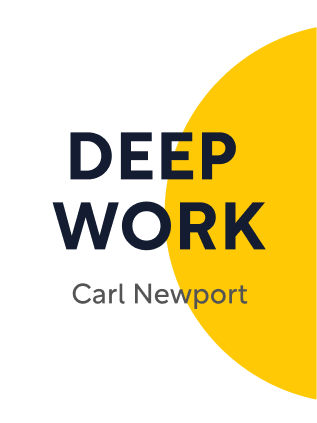

This article is an excerpt from the Shortform book guide to "Deep Work" by Cal Newport. Shortform has the world's best summaries and analyses of books you should be reading.
Like this article? Sign up for a free trial here .
Why is it so important to take a break from work? How can overworking your brain actually be counterproductive?
It can be tempting to spend most of your time working, especially if you have a demanding job. However, if you don’t give your brain time to relax, your work will become shallow and unproductive.
Keep reading to learn why you should allow your brain to relax at the end of every day.
Why Should You Take a Break From Work?
If you’re the type to want to be productive, it may be tempting to spend every waking hour working. Deep Work author Cal Newport thinks this is a counterproductive mindset, and that you should instead deliberately shut off your work and let your brain relax. Here are a few reasons you should take a break from work.
First of all, even experts can only accomplish 4 hours of intense concentration each day. At the end of the day, your brain is depleted of willpower and is usually at its least effective in doing effective tasks. If you try to work, you’ll often waste your time doing shallow work slowly, possibly tasks that didn’t need to be done at all.
Secondly, giving your brain time to relax is useful for solving difficult problems. This arises from two theories of thought:
- Unconscious Thought Theory: the subconscious parts of the brain are constantly working in the background to solve problems, in ways you can’t perceive. This subconscious work is high bandwidth and sifts through lots of possible solutions. In a stressful environment, such as one where your brain is overworked and given no chance to relax, your subconscious is less effective at this. This may also explain why some surprisingly good insights come at relaxing but otherwise odd times, like while in the shower or driving a car.
- Attention Restoration Theory: like willpower, your ability to focus is limited and needs to be recharged. Deliberately setting aside time to relax today improves your focus tomorrow.
Both suggest that giving your brain time to relax is useful for solving difficult problems.
Tips for Shutting Off Work
So how do you shut off work and relax? The book Deep Work suggests creating a shutdown ritual, where you check your work for anything you forgot and plan your next day’s work. Here’s an example ritual:
- Check your emails for any last urgent items.
- Keep a todo list of unresolved items.
- Make sure every item in the todo list is scheduled to be completed.
- Look through your calendar to make sure there aren’t important deadlines you forgot.
- Make a todo list of tasks tomorrow.
- Say “shutdown complete” or some equivalent phrase to explicitly mark the end of work.
The important concept here is to convince yourself that things will be fine when you shutdown. You’ll never be able to finish all your important work in one day. Instead of feeling anxious about unfinished tasks, be confident that all the important tasks are accounted for, and that you’ll make meaningful progress the next day.
One specific suggestion on how to relax after work – walking in nature. Unlike city streets, they’re cognitively undemanding, since there are no crosswalks and cars to navigate around. But they provide enough interest to the senses (sight, smell, hearing) to avoid a rambling mind.

———End of Preview———
Like what you just read? Read the rest of the world's best book summary and analysis of Cal Newport's "Deep Work" at Shortform .
Here's what you'll find in our full Deep Work summary :
- How deep work is critical for performance and productivity
- Why focus is like a mental muscle
- Why willpower isn't as good as a ritual






